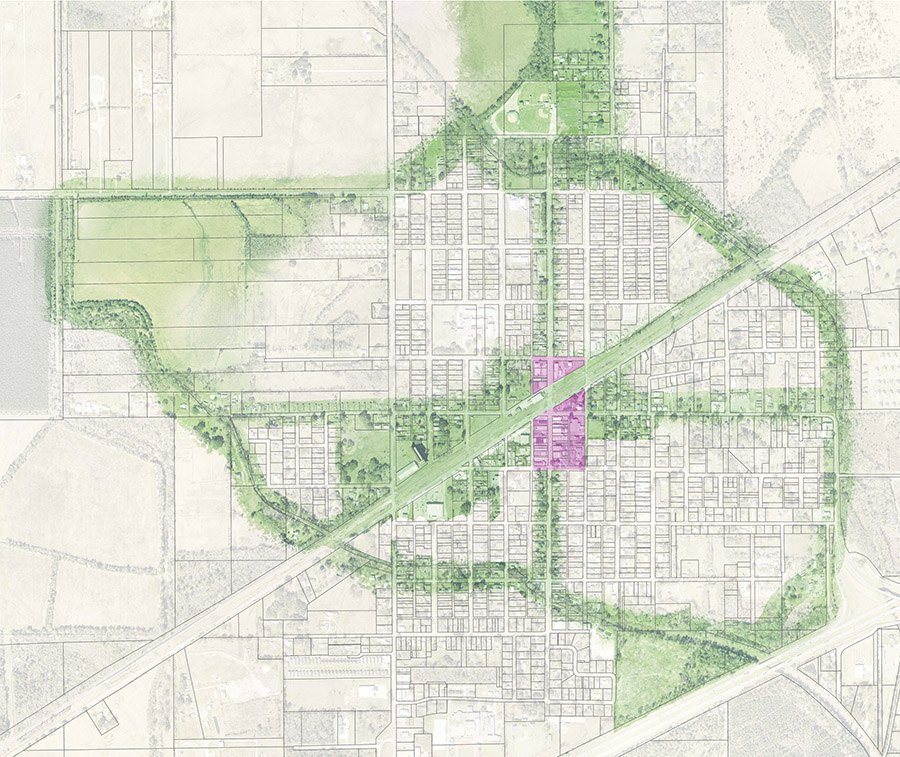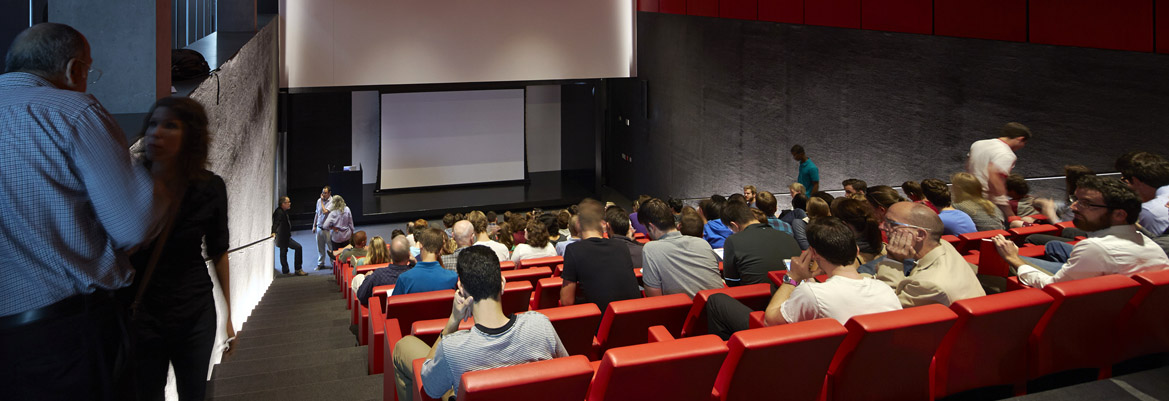
Student Work from Designing for Health in Vinton: People, Economy, & Environment (2023). Willow Cook, Leah Leblanc, Sydney Milligan, Jerund Sanders, and Eric Vanbergen. Courtesy of Haley Blakeman.
Haley Blakeman, a Fellow of the American Society of Landscape Architects (FASLA), is the Gulf Coast Resilience and Planning Lead for Moffatt & Nichol, a multidisciplinary firm that focuses on engineering and design where land meets water. She is also the 2025 Verna C. Garvan Distinguished Visitor in Landscape Architecture.
Blakeman will present a lecture at 4:30 p.m. Monday, March 17, in Ken and Linda Sue Shollmier Hall, Room 250 of Vol Walker Hall, on the University of Arkansas campus, as part of the spring lecture series in the Fay Jones School of Architecture and Design.
In her lecture, “Exploring the Agency of Landscape Architecture in Climate Adaptation,” Blakeman will explore the role of landscape architects in addressing the complex impacts of climate change.
Using project examples, Blakeman will show the value design thinking and transdisciplinary collaboration bring to adaptation and resilience. Examples will focus on landscape planning and design from the regional to the site development scale, emphasizing development strategies informed by the region’s ecology, culture and economy, based on principles of community engagement and resilience strategies.
Climate change is expected to displace tens of millions of people nationally in the coming years. As climate change further impacts people’s lives, migration and relocation rise. While there is much discussion on managed retreat, the concept of receiving communities — strategically designed places intended to attract and absorb population in a sage and culturally appropriate manner — is in its infancy.
The National Academies of Science’s recent report on receiving communities advocates for landscape architects and designers to be key leaders in this adaptation strategy. Blakeman will explore how landscape architects can engage in climate migration, and how the profession needs to adapt to address this issue.
She will discuss ways landscape architects and designers can lead this work, through establishing a methodology for identifying potential receiving communities, determining what people need to be resilient, and considering how to use this information to design places that improve well-being and support for current and future residents.
Blakeman’s will review examples located in Louisiana that include the first resettlement of an entire community due to the impacts of climate change, on Isle de Jean Charles in South Terrebonne Parish; community plans for receiving communities, in Jennings and Vinton; and community plans for adapting communities, in Jean Lafitte, Louisiana. She’ll also review examples of plans to live with water, such as the New Orleans Water Plan and Mirabeau Water Garden, both in Louisiana, and St. Paul’s Blue Greenway, in Norfolk, Virginia.
She’ll also discuss how the Ship Island Adaptation Master Plan exemplifies the benefit of transdisciplinary collaboration for adaptation that balances ecosystem services, protection and restoration in a fluid coastal environment.
As a landscape architect and planner, Blakeman brings various perspectives that enable her to be a creative problem-solver throughout her 25-year career. She has practiced in landscape architecture and multidisciplinary firms and helped communities grow and build resilience as the president and director of implementation at a ground-breaking, mission-driven planning nonprofit.
Blakeman’s career has focused on education — as a consultant creating planning and design best practices and as an assistant professor and associate director of the Robert Reich School of Landscape Architecture at Louisiana State University. Her breadth of practice helps her relate to multidisciplinary collaborations, researchers, administrators, students, emerging professionals and private practitioners. She has been involved with ASLA leadership at the local and national levels for many years, including as vice president of membership and a recent presidential candidate.
Blakeman’s research focuses on climate adaptation and resilience, including extensive research on receiving communities. This methodology will be incorporated into the 2029 Louisiana Coastal Protection and Master Plan to improve resilience in receiving communities and help coastal communities adapt as the environment and populations shift.
Blakeman is a frequent speaker regionally and nationally on the coastal adaptation to climate change impacts; community design; Complete Streets – a multimodal approach to roadway design and safety – and alternative transportation networks; authentic community engagement; and women in leadership.
The school is pursuing continuing education credits for this lecture through the American Institute of Architects.
This lecture is free and open to the public. Seating is limited.



